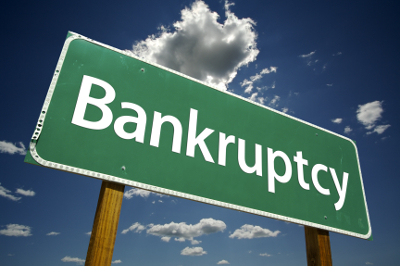Legal representation is a very important thing to have in a bankruptcy or any other legal process. However, there are times when you can be saddled with a lot of attorney’s fees from your own attorneys or, in the rare case, the opposition’s attorneys. Bankruptcy is supposed to be a form of debt relief that will help you discharge debts or reduce the amount you owe. In some cases, attorney’s fees may seem like a barrier to that goal. There are some forms of relief for attorney’s fees, though, if you meet the right criteria.
What counts as attorney’s fees?
Attorney’s fees can pile up in any case, even when you negotiate the price with your attorney. The so-called “American rule” says that each party pays their own attorney’s fees. In other words, attorney’s fees should not be shifted to the opposing party to pay, typically. There are various types of attorney’s fees, such as hourly fees, flat rate fees (e.g. $15,000 to handle an entire eviction case), or contingency fees (i.e. the attorney will not charge hourly but will receive a percentage of your recovery, if any).
If you are filing for bankruptcy, you could have attorney’s fees debt from any type of case. The amount of attorney’s fees you may have depends on the type of case (i.e. divorce, criminal, tort), the circumstances surrounding your case which could lead to longer litigation, and the type of fee you have set out in your fee agreement. In a bankruptcy case, a judge could examine fees that attorneys charge and determine whether some of them should be refunded to the trustee because they are unreasonable.1 An attorneys’ fees are reasonable depending on a number of circumstances, such as the experience, reputation, and ability of the lawyer or lawyers performing the service, the amount involved and results obtained, and the time limitations you impose on the attorney.2
Can I discharge attorney’s fees?
You can in certain cases. Most debts can be discharged in personal bankruptcy, including unpaid attorney’s fees.3 In family law cases, such as divorce, you can discharge legal fees owed to your attorney in a Chapter 7 bankruptcy.4 Chapter 7 bankruptcy is supposed to provide you with a fresh start so you can discharge your unsecured debts by paying off creditors with non-exempt assets. Unsecured debts can include credit card debts, medical bills, and even attorney’s fees.5
Of course, if your debt is mostly alimony, maintenance, or support and is owed to a former spouse or child in connection with a separate agreement or property settlement, you may not be able to discharge attorney’s fees if they were part of the alimony or child support agreement.6 This means that there are circumstances where you may not be able to discharge your attorney’s fees because they do not count as unsecured debt or the circumstances simply do not allow it. When attorney’s fees are secured debt it means that the attorney may have a lien securing the debt on something like real estate owned by the client.7 This means that the lien may survive bankruptcy even if the underlying debt is dischargeable.8 In spousal support cases, attorney’s fees may be unsecured but part of the spousal support (and therefore nondischargeable). Therefore, a lot can depend on contract. If you agreed beforehand to co-pay your ex-spouse’s credit card debt, you could not wipe that debt out through bankruptcy.9
Call to speak directly with an AZ bankruptcy lawyer to discuss attorney’s fees and payment plan.
[1] Patricia Dzikowski, Average Attorney Fees in Chapter 7 Bankruptcy, nolo.com, http://www.nolo.com/legal-encyclopedia/average-attorney-fees-chapter-7-bankruptcy.html (last visited Jan. 13, 2015).
2 Arizona Ethics Rule 1.5
3 Kristen Johnson, Personal Bankruptcy: Discharging Attorney’s Fees, legalmatch.com, http://www.legalmatch.com/law-library/article/personal-bankruptcy-discharging-attorneys-fees.html (last visited Jan. 12, 2015).
4 Richard Fonfrias, Chapter 7 Bankruptcy Can Erase Lawyer’s Fees In Family Law & Divorce Cases, chicagomoneylawyer.com, http://www.chicagomoneylawyer.com/articles/eraselawyersfees.html (last visited Jan. 12, 2015).
5 John Hilla, Can I Discharge Attorney Fees in Bankruptcy?, hillalaw.com (July 8, 2013), http://hillalaw.com/can-i-discharge-attorney-fees-in-bankruptcy/.
6 Richard Fonfrias, supra note 4.
7 John Hilla, supra note 5.
8 Id.
9 Justin Harelik, Debts That Can’t Be Wiped Out In Bankruptcy, bankrate.com, http://www.bankrate.com/finance/debt/debts-wiped-bankruptcy.aspx (last visited Jan. 13, 2015).


